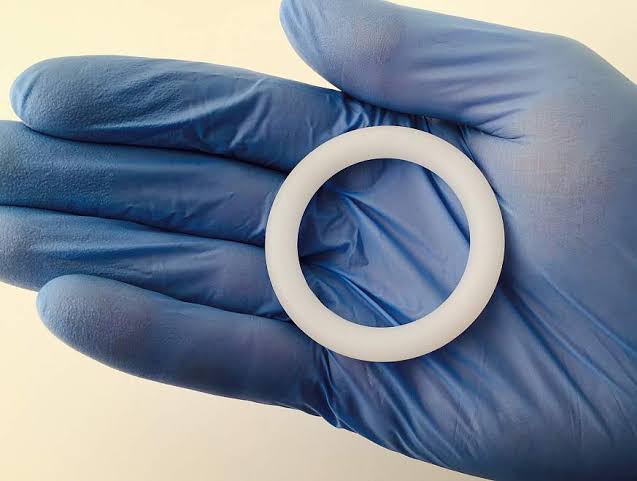‘New PrEP ring reduces HIV infection by 50%’
New HIV Vaccine and Microbicide Advocacy Society (NHVMAS), says the Pre-Exposure Prophylaxis (PrEP) ring, also known as dapivirine ring, can reduce HIV infection in women by 50 per cent if strictly adhered to. PrEP is a drug people at risk of Human Immunodeficiency Virus (HIV) take to prevent contracting the virus from sex or injection […]

PrEP ring
New HIV Vaccine and Microbicide Advocacy Society (NHVMAS), says the Pre-Exposure Prophylaxis (PrEP) ring, also known as dapivirine ring, can reduce HIV infection in women by 50 per cent if strictly adhered to.
PrEP is a drug people at risk of Human Immunodeficiency Virus (HIV) take to prevent contracting the virus from sex or injection drug use.
The Executive Director, NHVMAS, Mrs Florita Durueke, said this at an ongoing media training for female journalists in Lagos.
She said though the national HIV prevalence is 1.4 per cent, the burden on women was higher.
Durueke said those between the ages of 15 and 49 years had a double chance of living with the virus compared to their male counterparts.
- Buhari mourns longest serving Warri chief, Rone, condoles Na’Abba
- Tinubu, Wike’s camps meet to finalise deal on 2023
“Data shows that the HIV prevalence was the highest among females aged 35 to 39 years at 3.3 per cent and highest among males aged 50 to 54 years at 2.3 per cent.
“The prevalence for young women is 1.3 per cent but for the young men of the same age group, their prevalence is 0.4 per cent,” she said.
Durueke said that if given the power to make the right choice in the use of PrEP, the outcomes would be different for women.
According to www.hiv.gov, anyone who is sexually active and doesn’t have HIV can use PrEP.
PrEP is highly effective at preventing HIV when taken as indicated, reducing the risk of transmission from sex by about 99 per cent.
Durueke said like for family planning, there were different HIV prevention tools already in the market and women should consider their lifestyles when making a choice.
She said the dapivirine ring could reduce HIV incidence among women by 50 per cent when used with high adherence.
She described the PrEP ring as a flexible vaginal ring, made of silicone that slowly releases an Antiretroviral (ARV) drug called dapivirine over the course of one month to reduce the risk of HIV infection.
“During an open-label study, the ring can protect from HIV as high as 50 per cent.
“The PrEP ring provides a steady release of dapivirine over one month without the need for maintenance.
“Low maintenance means less burden on the user to remember doses and may encourage more consistent use,” she said.
Durueke said the dapivirine ring, which was developed by International Partnership for Microbicides (IPM) and approved by World Health Organisation (WHO) for 18 years and above, was easy, long-acting, private and safe to use.
The PrEP ring can be inserted or removed by women without the help of a health care provider.
It is easy to move around with and does not cause discomfort for the male or female during sex. (NAN)
